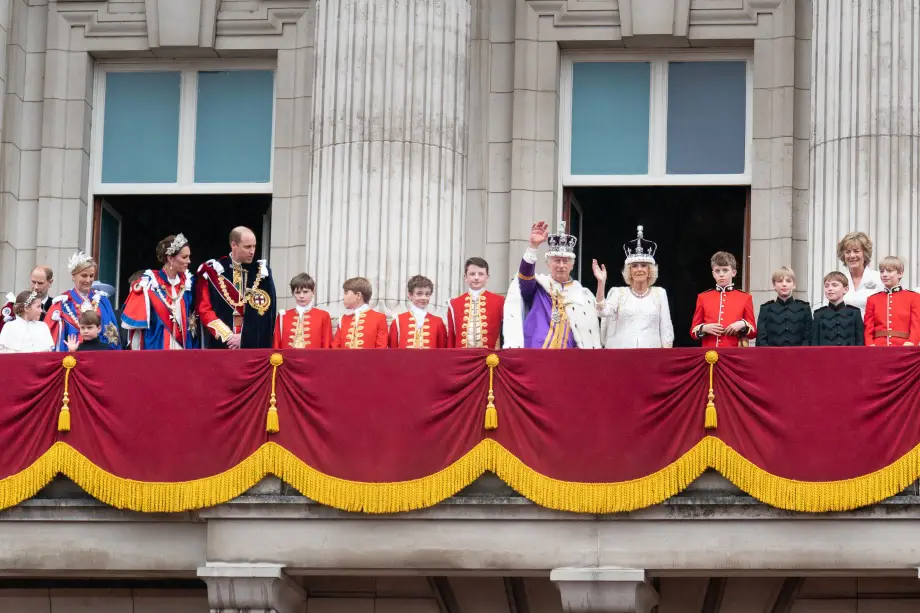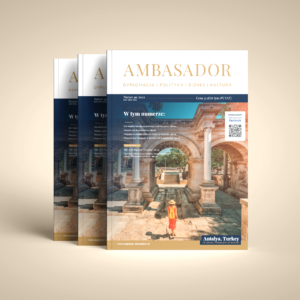Britain formally has a new king. Brits celebrated en masse, showing that the kingdom is still united.
The Archbishop of Canterbury, Justin Welby, placed the crown of St. Edward on the head of Charles III and loudly said: God save the King!
God save the King!, – the crowd shouted back.
BIt was the fortieth coronation at Westminster Abbey in London, and Charles is the sixty-second king of the British Isles. He is the oldest monarch to ascend the throne at 75 years old.
The British kingdom has come a long way in the last 1,219 years, since Egbert, King of Wessex, came to the throne in 802. He is considered the first monarch to establish lasting power in England. Many of his successors left their mark on the British tradition. This tradition, mixed with modernity, could be seen during the coronation ceremony of Charles III on Saturday, 6 May, 2023.
Old and new
It was not only a coronation, but also an anointing of the king as head of the Church of England. This tradition has been going on since the time of Henry VIII of the Tudor dynasty. It was he who in 1534 broke away from the Holy See. Since the time of the Tudors, the uniforms of the royal bodyguard – Yeomen of the Guard, who assisted the royal couple during the entire ceremony, have remained unchanged to this day.
The new King received the insignia of power sitting on a seven-hundred-year-old oak throne.
Ultra-modern high-definition cameras easily picked up the small inscriptions carved into the wood long ago. The piece of furniture was made in 1296 at the request of King Edward I. Could the medieval artists working on this work have imagined that it would one day be viewed simultaneously by four hundred million pairs of eyes around the world? This was the estimated audience for the television broadcast of the ceremony at the London temple.
Would this audience be so large if not for the period of great British power, built throughout the 18th century, developed during the reign of Queen Victoria and lasting until the middle of the 20th century? And although Canada, India and Australia have long been independent countries, viewers from these countries could watch the broadcast from London on BBC television without an interpreter. The English language is a memento of an empire. A practical souvenir, because it is used every day.
Antiquity harmonized with modernity at every step. During the coronation, precious stones on the 17th-century crown of St. Edward sparkled. Shortly afterwards, quite modern Hawk T1 jets roared, emitting smoke across the sky in British national colours. The royal couple arrived for the coronation in a new air-conditioned carriage, modelled on the previous coronation vehicle from the 18th century.
Theatre of fairy tales and football
Is such a ceremony straight out of old fairy tales suitable for today? Many Britons are wary of supporting the royal court with their taxes and organising such events.
King Charles and Queen Camilla were well aware of these sentiments. Therefore, coronation ceremonies were more modest and cheaper than years ago. Thus, approximately 2,000 special guests were invited to the ceremony at Westminster Abbey, which is four times less than for the coronation of Elizabeth II in 1953. Seventy years ago, the ceremony at the temple lasted three hours, and this time only one hour.
The fairy-tale form of the coronation could be perceived as a mouse-clicking and heavily directed spectacle. Suffice it to say that the anthem “Zadok the Priest” performed during the coronation, written by George Frideric Handel for the coronation of George II in 1727, could be associated with something completely different by many listeners. The same melody, although with changed words, in the meantime became the anthem of … the football Champions League.
Nevertheless, the ceremonies were organised in such a way as to create an atmosphere of openness to change while maintaining tradition, corresponding to the requirements of diversity in the 21st century. Of course, the ceremony of anointing the king with oil brought from Jerusalem was retained. He thus formally became the lay head of the Church of England. But also during the coronation, prayers for the new ruler were said by priests of five different denominations, different sexes and different skin colours. During the ceremony, reading from the letter of St. Paul to the Colossians was read by Prime Minister Rishi Sunak – a practicing Hindu. The ceremony was also attended by the newly elected First Minister of Scotland, Hanza Yusaf, who in turn is a Muslim. African and Asian facial features could also be seen in the children’s and adult choir.
Finally, King Charles himself is a most modern figure. He has been promoting ecological ideas for a long time, living partly on a vegan diet. He admits that he sometimes talks to plants when he visits his organic farm in Gloucestershire. And as an enthusiast of architecture and urban planning, he often supported the construction of harmoniously designed housing estates, where people could live in harmony with nature.
Feelings of emotions and fun
Many Britons feel genuine emotion at events such as the coronation of a king or even the recent funeral of Queen Elizabeth. Maybe because such ceremonies show tradition and uninterrupted continuity of the monarchy. They remind us of the power of the United Kingdom. Maybe not as big as it used to be. But the British army, parading in front of Buckingham Palace, is armed not only with ceremonial sabres. It also has nuclear warheads.
The royal Windsor family, despite its various moral vicissitudes, is still loved by its many countrymen, not to mention sympathizers around the world. Just read the comments on You Tube under the video showing this part of the ceremony when the heir to the throne, Prince William, pledges allegiance to his father. “I’ve watched this coronation moment dozens of times and cried every time,” one user wrote. Another admitted: “A very touching father-son moment. That look into his father’s eyes was priceless.”
Others were not only moved, but also had fun. For three days. The Monday following the coronation weekend was a public holiday in the UK. Millions of people took part in countless picnics and festivals. UK Hospitality, which brings together hoteliers, restaurateurs and publicans, predicted that the celebrations could boost industry revenues by GBP 350 million.
If the coronation could so unite the inhabitants of the British Isles in celebrating the royal coronation, then I guess the name of this country still makes sense. It’s the United Kingdom.
Paweł Rochowicz



Sledź nas na: